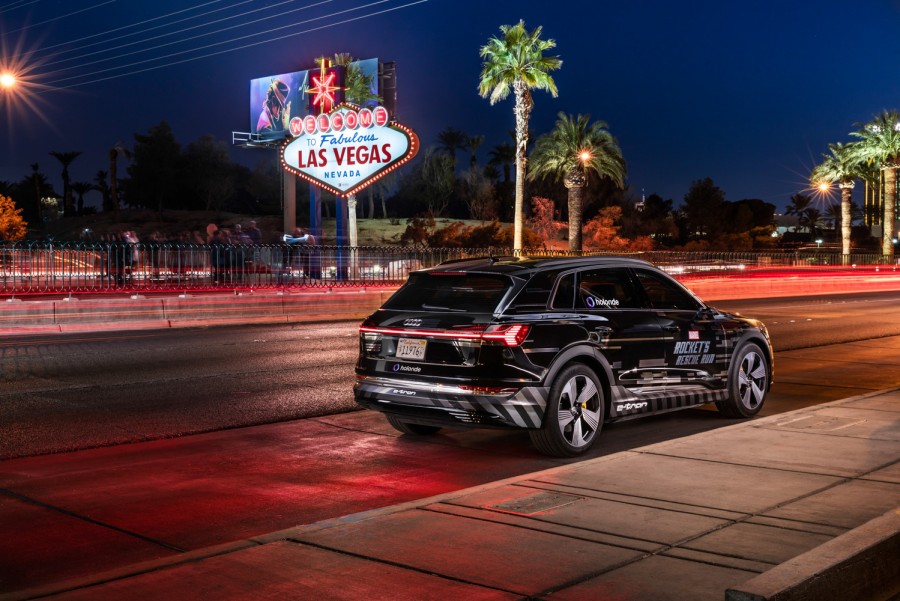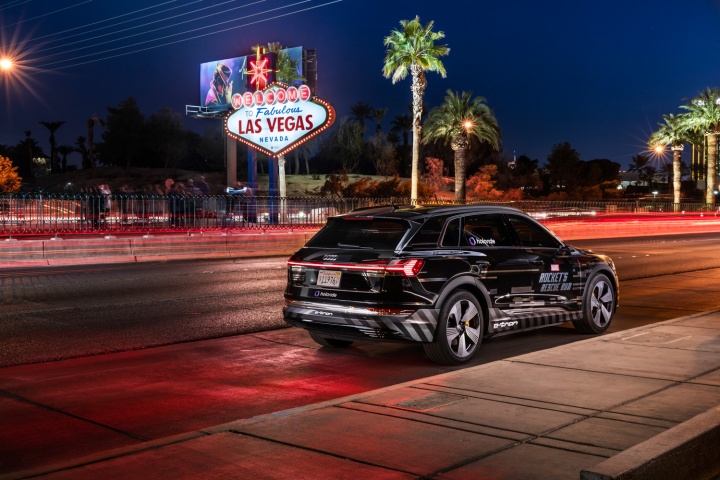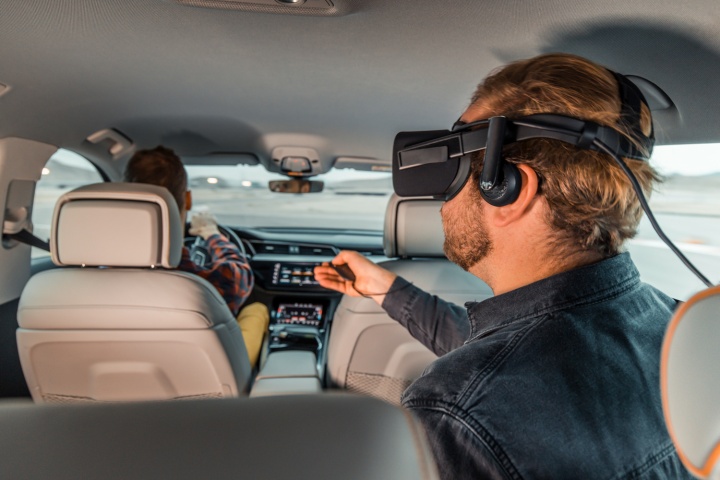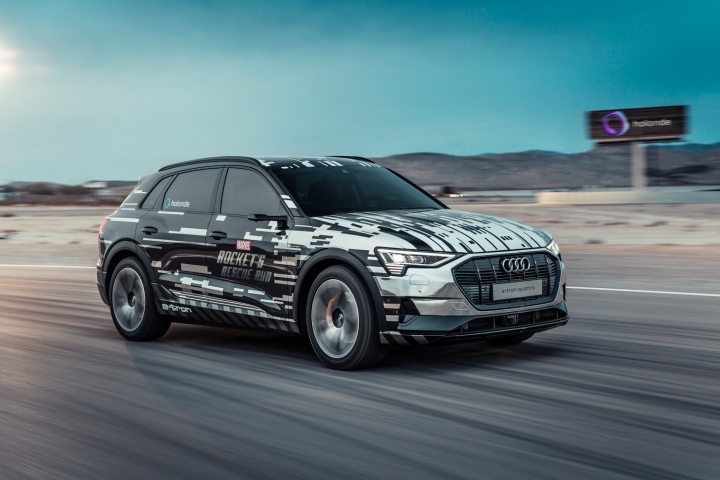What's the news?
If you're of the disposition where you often get car-sick as a passenger, you might want to look away now... as Audi has revealed that the future of its in-car entertainment will include virtual reality for back-seat passengers.
Using the Consumer Electronics Show (CES) in Las Vegas as the place to showcase its futuristic technology, Audi announced it has co-founded a start-up company called Holoride GmbH, which will commercialise a form of in-car entertainment, using VR glasses, that allows back-seat passengers to experience movies, video games and interactive content. Audi has said Holoride will develop this on an open platform, meaning it will be available to other carmakers and content developers in the future.
Using its long-standing tie-up with Marvel Studios, Audi used an e-tron SUV as the showcase for the Holoride VR tech. Running a programme called 'Marvel's Avengers: Rocket's Rescue Run - and starring the talking raccoon from the Guardians of the Galaxy film series - the passengers in the back of the electric SUV were transported into a fantastical depiction of outer space. Through the VR glasses, the e-tron now functions as the ship, manned by the characters from GotG, and the passenger makes their way through an asteroid field, together with Rocket.
What's most clever about the tech is that any movements that the e-tron makes in the real world are reflected real-time in the VR experience. So if the Audi takes a tight corner, the VR viewer in the back will see the footage curve around a rival spaceship in the simulation. If the e-tron accelerates, then the ship in the VR experience does the same.
Audi holds a minority interest in Holoride GmbH through its subsidiary, Audi Electronics Venture GmbH, and has pledged to license its VR tech to Holoride. The start-up company will then open the tech up to other developers and car companies, allowing for the creation of additional 'extended reality' formats.
Audi says there is no limit to what can be shown through the VR headsets, with realities such as games, underwater adventures and space exploration just as likely as educational software which takes the viewer through historical cities or into the human bloodstream (eeew!). And Audi also claims that our original comment about car-sickness will not be an issue, as the visual VR experience and the user's actual perceptions of movement are synchronised, so movies, TV series or presentations can be viewed with a 'significantly reduced chance of motion sickness'.
Nils Wollny, head of Digital Business at Audi and future CEO of Holoride, said: "Creative minds will use our platform to come up with fascinating worlds that turn the journey from A to B into a real adventure. We can only develop this new entertainment segment by adopting a cooperative, open approach for vehicle, device and content producers."
Anything else?
Holoride intends to launch the VR in-car entertainment on the market within the next three years. And if car-to-X infrastructure communications take off, then even events like stopping at traffic lights could trigger unexpected obstacles in a VR game or interrupt a learning programme with a quick quiz.




